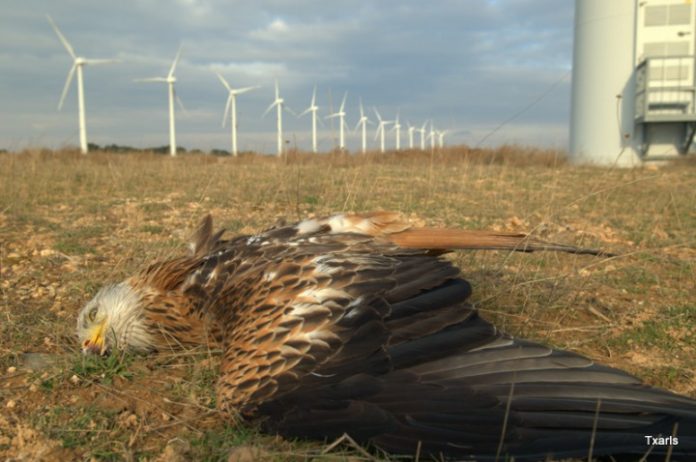By cutting off oil and gas exploration as part of a global campaign to achieve net zero emissions by 2050, policymakers aligned with climate activists are “misdirecting scarce innovation resources,” according to an analysis of energy transition efforts.
While proponents of Environmental, Social, and Governance investing continue to seize upon the International Energy Agency’s (IEAs) “roadmap” for reaching net zero as a plug for their ambitions, the authors of a new study probing into the agency’s projections find that they are based on faulty assumptions.
The net zero initiatives that IEA foresees can only materialize if demand for coal, oil, and natural gas plummet while consumers gravitate toward so-called renewable energy in the form of wind and solar. But as the report from the RealClearFoundation and the Energy Policy Research Foundation makes clear, this is a dubious proposition.
“Rather than being a plausible description of the future, demand for hydrocarbons withering away is best thought of as an expression of a political or an ideological aspiration, as opposed to an objective assessment of the future,” the report says. “The failure to invest in increased supply is far more likely to result in upwardly spiraling prices as demand increasingly exceeds supply, as the Biden administration understood when it used the Strategic Petroleum Reserve for the nonstrategic purpose of tamping down gasoline prices.”
The foundation is a nonprofit group founded to examine energy economics and policy with an emphasis on energy security. The geopolitical implications of net zero policies and ESG investing figures into its analysis of IEA’s roadmap. A big part of the problem lies with the Organization of Petroleum Exporting Countries, widely known as OPEC, and the leverage it could gain over western nations including the U.S.
If the demand for petroleum is higher than what is projected in IEA’s roadmap, which is highly likely, the foundation estimates that OPEC’s share of global oil market could rise to an astonishing 82 percent by 2050. OPEC includes Iran, Iraq, Kuwait, Saudi Arabia, and Venezuela.
“Wittingly or otherwise, ESG investors are undermining the security interests of the West during a period of rising geopolitical tensions,” the foundation warns in its analysis. The upshot is that the west is well positioned to maintain a healthy level of independence from OPEC with the right mix of policies. The foundation points out that IEA was initially established in response the “first oil price shock” in the early 1970s “to act as a buyers’ group of western nations in an attempt to counteract OPEC market power.” But given how politically fashionable “net zero” efforts have become, the agency has clearly strayed from its mission.
“The IEA could have chosen to remain faithful to its original mandate, but as the Energy Policy Research Foundation report shows, in seeking to become a cheerleader for net zero, the IEA has allowed itself to be used as a tool for climate extremism, has misled policymakers, and has endangered the world’s economy and Western security, all while forsaking the purpose for which it was created.”
A key part of the foundation’s report focuses on the negative consequences that would flow from halting investment in new oil and gas fields based on the idea that a seamless transition can be made to renewables. American energy consumers can expect to take it on the chin.
In the first decade under net zero emissions, the foundation estimates that global oil and gas fuel receipts will be between $12.2 trillion and $52.6 more than what IEA envisions under its policy scenarios. Put simply, consumers will have to pay more for less oil and gas along with all the costs associated with making the energy transition.
The foundation’s analysis also highlights the environmental degradation that could result from a headlong rush toward net zero that does account for financial and technological realities.
“Reducing oil and gas supply will contribute to various environmental and health effects around the world. First, it will likely lead to a resurgence of coal consumption, as many low- and middle-income countries may struggle to afford higher-priced natural gas for heating, cooking, and electricity generation,” the report warns. “As a result, coal-to-gas switching in many countries may regress, increasing local air pollution and exacerbating health crises in many urban areas.” (RELATED: DAVID BLACKMON: A Backlash Against Net-Zero Policies Is Finally Beginning To Take Shape)
Self-described environmentalists might also want to take a hard look at the amount of land wind and solar could gobble up. The foundation calculates that solar and wind generation capacity needed to achieve net zero requires an area equivalent to the combined size of California and Texas while the bioenergy needed for electricity production would be about the size of France and Mexico combined.
Apparently, there’s more than just raw economics at stake. What environmental advocacy groups typically describe as clean, and green is neither.
The geopolitical, economic, and environmental costs of net zero call out for a political course correction.
Kevin Mooney is the Senior Investigative Journalist at the Commonwealth Foundation, Pennsylvania’s free-market think tank, and writes for several national publications.
Originally published by The Daily Caller. Republished with permission. Content created by The Daily Caller News Foundation is available without charge to any eligible news publisher that can provide a large audience. For licensing opportunities of our original content, please contact licensing@dailycallernewsfoundation.org.
For more on net zero, click here.
For more on ESG, click here.


























